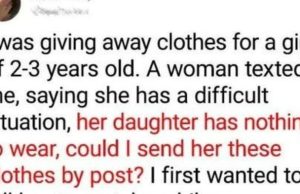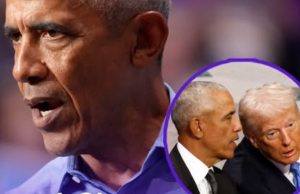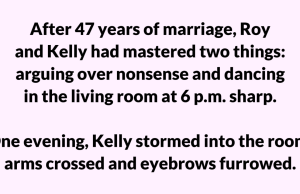
The phone lit up on the patio table with a sharp, unnerving message from an unknown number: Walk away. Don’t speak to anyone. Leave now. Seconds later, squad cars slid silently into my daughter-in-law’s pristine suburban driveway, their lights flashing. That was the moment everything I thought I knew about my family destr0yed.
I’m Lucia, 65, and I’ve long believed family gatherings are more draining than a full day’s work. That Saturday at my son Robert’s home proved no different. His wife, Amanda, stood near the grill, flawless even in the July heat, barking orders at Robert like he was staff.
“Robert, the steaks are burning,” she snapped, in the same tone she used when lecturing me about how I stacked her dishwasher.
I sat at the patio table, watching my grandchildren Emma and Jake tumble across the lawn. Emma called for my attention, showing off a clumsy cartwheel. She was seven and still thought her grandmother’s approval mattered. Those small moments kept me enduring the tension Amanda always brought.
Amanda soon appeared at my side, wine glass in hand.
“Lucia, we need to talk,” she said, her perfume heavy, her smile rehearsed. My chest tightened. Conversations that began this way rarely ended well.
She launched into a polished speech about “boundaries” for my visits, cloaked in concern for the children’s “values and consistency.” What she meant was clear: my influence was a problem. My love, she implied, was inconvenient.
Before I could respond, my phone buzzed. Walk away. Don’t talk to anyone. Now.
The words froze me. I excused myself and slipped out through the side gate. The texts kept coming, more urgent each time, as police cruisers turned onto the street. Within minutes, Robert’s home looked like a crime scene.
From my car, I answered a call from Robert. His voice shook. The police wanted to question Amanda about her computer, her finances, even her business ties. Identity theft. Fraud. Things I couldn’t interact with the polished woman who ruled my son’s household.
Then I remembered all the times she had pressed me for personal details, provided to “help” with my bills, sorted through my husband’s estate papers. A sick realization set in: I hadn’t been struggling with technology. She had been staging access.
More texts came. Don’t go home. You’re in danger.

The sender finally revealed Amanda had once tried to have me declared mentally incompetent to gain control of my finances. My blood ran cold.
The next morning, I met Diana, Amanda’s former business partner, who confirmed everything. Amanda had been running a scheme targeting vulnerable widows. She had selected my family deliberately. The evidence—my documents, my bank details, seventeen fraudulent accounts—was in Diana’s folder.
Robert struggled when I told him.
“Did she ever love me,” he asked, broken, “or was I just part of her plan?”
I had no answer but the truth: Amanda had seen him as her way in.
Even when Amanda tried to spin her innocence in a coffee shop meeting, claiming I was confused and Diana was bitter, her mask damaged. Robert saw it too. The love he thought he understood was manipulation, and once he knew that, he selected to combat for the truth.
Eventually, investigators tied Amanda to a larger fraud ring spanning three states. She went from housewife to federal defendant in a matter of weeks. She gave up her parental rights without a struggle, and Robert was left to raise Emma and Jake without her shadow.
A year later, our family gathered again—this time in my apartment, with laughter free of Amanda’s control.
Diana had joined us too, now a friend. I looked at Robert and my grandchildren, realizing Amanda’s betrayal had, in a strange way, forced us closer. She had tried to fracture us, but instead, we rebuilt stronger, anchored in honesty.
The spell was broken. We had found our way back to each other.
















